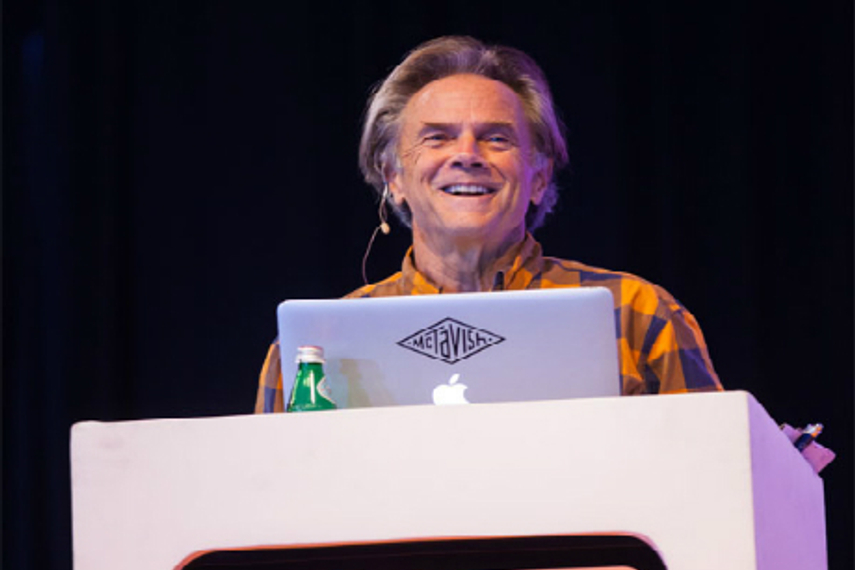
Graphic design guru and former professional surfer David Carson pulled in a full house at the Dubai Lynx, encouraging those within the industry to draw on their own experiences in life to better their work.
The founder of US-based David Carson Design and the man behind some of the most innovative magazine design of the past 30 years, urged designers and illustrators to experiment and for employers to give them the space to do so.
“Sometimes when you hire good people, you have to get out of the way and let them do what they do,” he said. “If I hire an illustrator, I hire them because I know their work and I loved it and if I get out of the way and let them do it, I’m probably going to get something really, really good. But if I have to micro-manage every step it’s probably going to end up somewhere in the middle. Group and committee decisions will never get you great or horrible design, you’ll end up somewhere in the middle. [And] if everybody loves your work, you’re playing it way too safe.”
Using an array of slides to illustrate his argument, Carson used one that simply said: ‘Don’t mistake legibility for communication’. It was his belief in this statement and his unconventional style that defined visual communication in the 1980s and 90s, via magazines such as Transworld Skateboarding and Ray Gun.
“Someone once said to me ‘do you have any time for personal work?’ and I said, ‘well, actually it’s all personal’. I don’t have any formal training, my background is a degree in sociology, so it’s a second career for me. I never learnt all of the things I’m not supposed to do, I just do what I do and what makes sense to me. I don’t use a grid or have any kind of pre-arranged system. I think that’s when things get boring and forgettable – whenever you have everything set up in advance and just drop in photos and content.
“The amount of love and effort and passion you put into something is going to be reflected in the reaction that other people give to it. If you give it very little attention, they probably won’t either. I actually gave a lecture entitled ‘Never snap to guides’. Don’t let the computer make those decisions. You need to be making those decisions, otherwise we don’t really need designers. We need to take design even further, [make it] more unique, and one way to do that is to make the work more personal and utilise your own personality,” he explained.
A constant observer and clicker of things that catch his attention, he added: “Something catches my eye and hopefully makes its way into the work, and I think that’s a much better way to work than looking at the design annuals and the award books. Everybody can look there, everybody can go to the same resources, but only you can pull from your own unique experience.”


.jpg&h=334&w=500&q=100&v=20250320&c=1)
.jpg&h=334&w=500&q=100&v=20250320&c=1)

.jpg&h=334&w=500&q=100&v=20250320&c=1)


.jpg&h=334&w=500&q=100&v=20250320&c=1)







.jpg&h=268&w=401&q=100&v=20250320&c=1)
.jpg&h=268&w=401&q=100&v=20250320&c=1)


